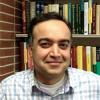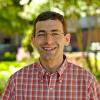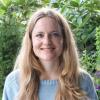news
Georgia Tech Geometry and Topology Group Wins $2.1 Million NSF Grant
Primary tabs
The National Science Foundation (NSF) has awarded a Research Training Groups (RTG) grant to the Georgia Tech Geometry and Topology (GTGT) group. GTGT will use the $2.1 million grant over five years to train undergraduates, graduate students, and postdoctoral fellows. The GTGT project supports NSF’s long-range goal to increase the number of U.S. citizens, nationals, and permanent residents pursuing careers in mathematics.
School of Mathematics faculty members Igor Belegradek, John Etnyre, Stavros Garoufalidis, Mohammad Ghomi, Jennifer Hom, Thang Le, Dan Margalit, and Kirsten Wickelgren make up GTGT and are co-principal investigators of the grant.
Why Study Topology and Geometry
Etnyre answers this question. He explains:
“Topology is the study of spaces. They can be the space we live in or configurations of mechanical systems. Mathematicians also consider spaces of solutions to algebraic equations and partial differential equations, as well as even more abstract space.
“More specifically topology is the study of spaces where some notion of continuity makes sense. What are these spaces? How can we distinguish one space from another? What interesting properties do specific spaces have? These are the basics questions in topology, whose language pervades much of mathematics, science, and engineering.
“Geometry is, loosely speaking, the study of some kind of structure on a space. Riemannian geometry involves spaces on which you can measure lengths of vectors and the angles in between. Symplectic geometry allows one to study dynamical systems akin to classical mechanics on a space.
“Topology and geometry underlie a great deal of science and engineering. Whether trying to understand general relativity and the structure of the universe, design robust sensor networks, unravel DNA recombination, develop string theory, or countless other endeavors, the underlying language and ideas are likely to be that of geometry and topology.”
“Topology and geometry underlie a great deal of science and engineering. Whether trying to understand general relativity and the structure of the universe, design robust sensor networks, unravel DNA recombination, develop string theory, or countless other endeavors, the underlying language and ideas are likely to be that of geometry and topology.”
Expected Outcomes
Over its five-year run, the grant will enable the training of 60 undergraduate students, 22 graduate students, and 14 postdoctoral fellows. Supplementary funding from the College of Sciences will ensure three years of support for all postdoctoral fellows.
Etnyre says GTGT will leverage its access to Georgia Tech’s engineering programs to spark collaborations between engineers and mathematicians. Similarly, GTGT will use its proximity to institutions serving groups underrepresented in mathematics to help increase the representation of minorities and women in advanced mathematics.
Ultimately, Etnyre says, “we aim to develop students and postdoctoral fellows who are well-rounded scholars, accomplished teachers, and valuable members of the mathematics community.”
Areas of Expertise
The GTGT group is strong in various fields:
- Algebraic Topology: Kirsten Wickelgren
- Contact and Symplectic Topology: John Etnyre
- Geometric Group Theory: Igor Belegradek and Dan Margalit
- Global Riemannian and Differential Geometry: Igor Belegradek, John Etnyre, and Mohammad Ghomi
- Heegard-Floer Theory: John Etnyre and Jennifer Hom
- Low-Dimensional Topology: John Etnyre, Stavros Garoufalidis, Jennifer Hom, Thang Le, and Dan Margalit
- Quantum Topology: Stavros Garoufalidis and Thang Le
- Riemannian Geometry of Submaniforlds: Mohammad Ghomi
All these areas would benefit from the grant.
“We aim to develop students and postdoctoral fellows who are well-rounded scholars, accomplished teachers, and valuable members of the mathematics community.”
Grant-Enabled Activities
The grant enables the GTGT group to embark on several major activities:
- Expand the group by supporting graduate and postdoctoral fellowships
- Enhance educational opportunities for all students through new courses, expanded seminars and REU (Research Experiences for Undergraduates) opportunities, and a direct-reading program for undergraduates
- Firmly establish the annual Georgia Tech Topology Conference and the biennial Topology Students Workshop, continue the Southeastern Undergraduate Mathematics Workshop, and initiate the Georgia Tech Topology Summer School
- Strengthen professional development components of graduate and postdoctoral training
- Increase interaction with colleges and universities serving groups that are underrepresented in mathematics and expand outreach to precollege students
- Create a website to serve as repository of resources
Status
- Workflow status: Published
- Created by: A. Maureen Rouhi
- Created: 07/02/2018
- Modified By: sbarone7
- Modified: 02/12/2019
Categories
Keywords
User Data








